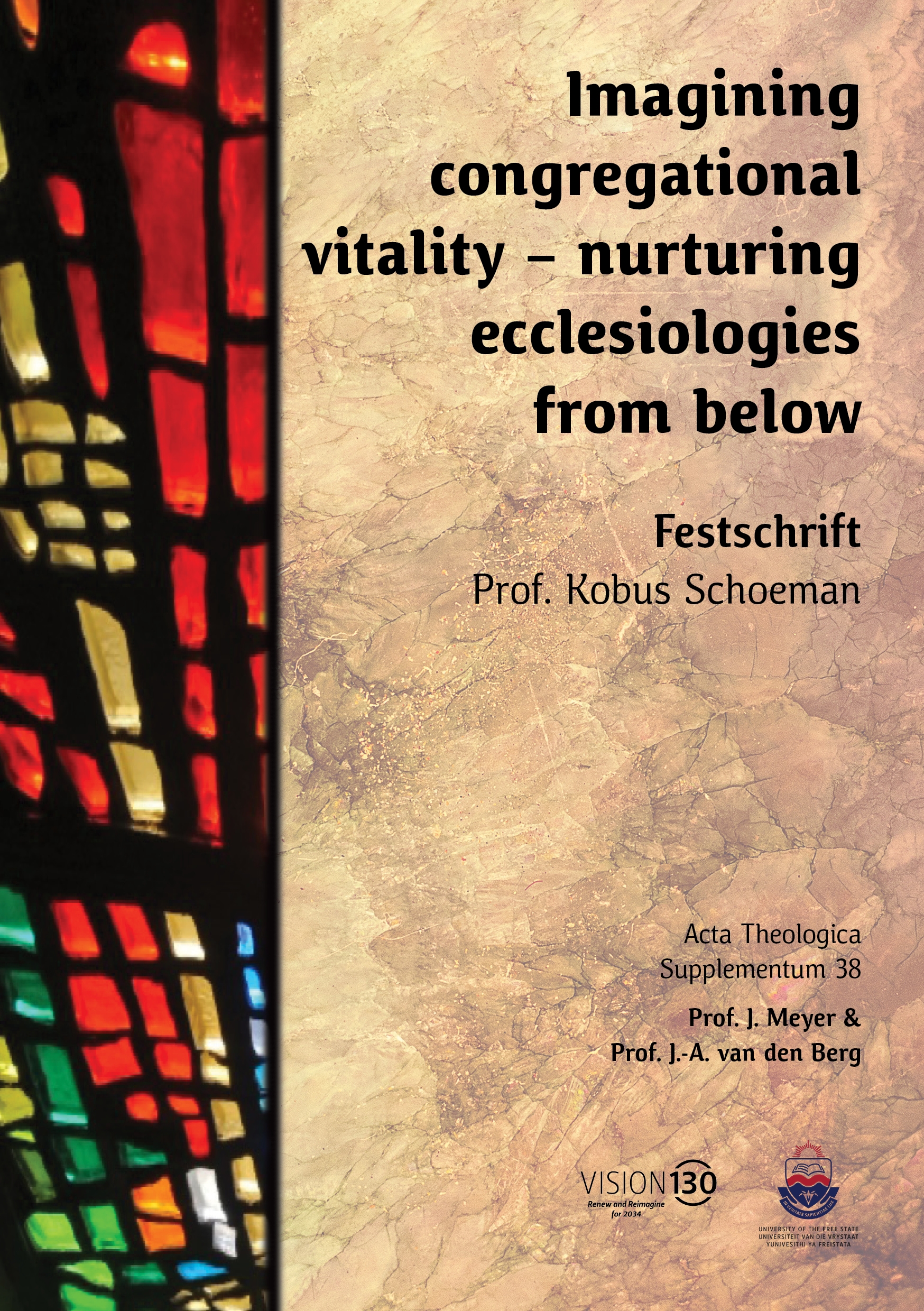The use of empirical data in communal discernment and decision-making processes in the Dutch Reformed Church
DOI:
https://doi.org/10.38140/at.vi.8756Keywords:
Discernment, Communal, Process, Empirical dataAbstract
This article endeavours to present an overview of communal discernment processes developed in the Dutch Reformed Church over the span of two decades. The focus falls on the use of empirical data in these processes. The DRC research team, under the leadership of Prof. Kobus Schoeman, amassed a rich repository of data on the church and its congregations. This data, when used within a framework of discernment, can play an invaluable role in the development of a theology from below, where the theological foundations and concrete reality of the church’s context are taken into account. Discernment
processes then provide frameworks wherein God’s call and preferred future for the church as well as its identity can be discovered. The processes that are developed are becoming increasingly more precise and user friendly. This is important because discernment processes can be dauntingly complex and protracted. By paying attention to discernment processes developed in the ecumenical world, the self-developed processes can be enriched and corrected where necessary.
Downloads
##submission.downloads##
Published
How to Cite
Issue
Section
License
Copyright (c) 2024 L. Bosman

This work is licensed under a Creative Commons Attribution 4.0 International License.




